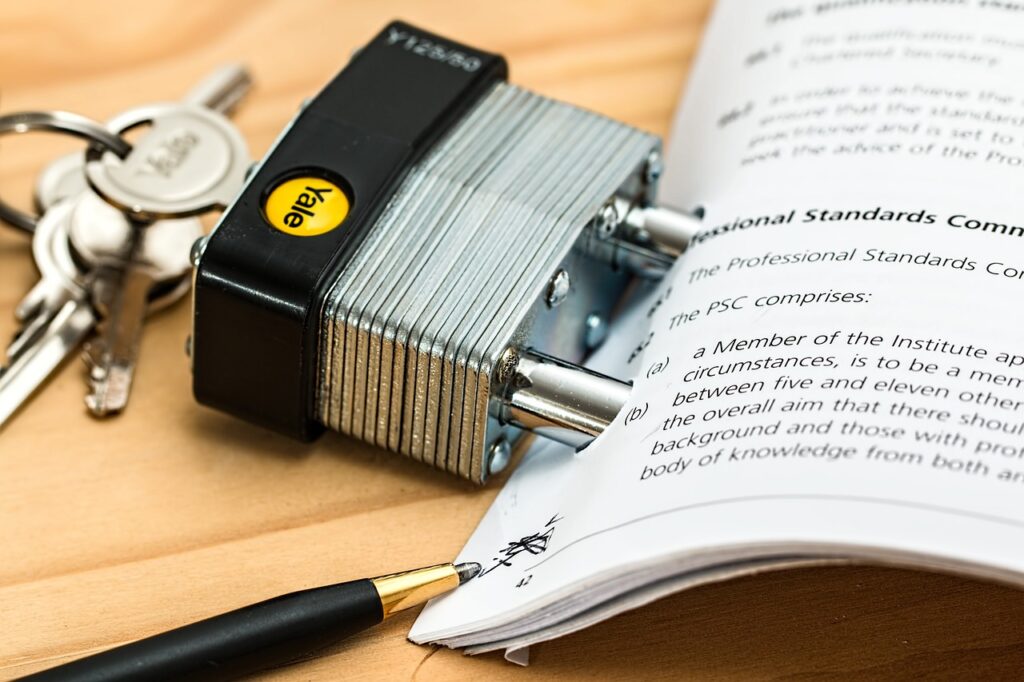If you’re a real estate wholesaler, you’re always looking for ways to increase your profits. One strategy that you may not have considered is lease purchase deals. By integrating lease purchases into your wholesaling business model, you can create additional revenue streams and close more deals. In this article, we’ll explore how lease purchase deals work and how you can wholesale them for profit.
Understanding lease purchase is key to integrating this strategy into your business model. Essentially, a lease purchase deal is when a buyer leases a property with the option to purchase it at a later date. This can be a win-win for both parties: the buyer has time to save up for a down payment and improve their credit score, while the seller can generate income from the lease and potentially sell the property for a higher price down the line. Real estate wholesalers can play a key role in facilitating these types of deals and profiting from them.
So, how can you as a real estate wholesaler profit from lease purchase deals? There are several ways to approach this, from assigning the contract to another investor to negotiating a higher purchase price with the buyer. We’ll explore these strategies and more in the following sections. By the end of this article, you’ll have a solid understanding of how lease purchases can fit into your wholesaling business and how you can profit from it.
Key Takeaways
- Lease purchase deals involve a buyer leasing a property with the option to purchase it at a later date.
- Real estate wholesalers can facilitate lease purchase deals and profit from them by assigning the contract or negotiating a higher purchase price.
- Integrating lease purchases into your business model can create additional revenue streams and help you close more deals.
Understanding Lease Purchase
Lease purchase, also known as rent-to-own, is a real estate strategy that allows a tenant to lease a property with the option to purchase it at a later date. This strategy can be a great opportunity for real estate wholesalers to increase their profits.
When it comes to lease purchase deals, the wholesaler acts as the middleman between the seller and the tenant-buyer. The wholesaler would find a motivated seller who is willing to lease their property with the option to purchase it in the future. The wholesaler would then find a tenant-buyer who is interested in the property and willing to enter into a lease-purchase agreement.
The tenant-buyer would pay an option fee to the wholesaler, which would give them the right to purchase the property at a later date. The wholesaler would then collect monthly rent from the tenant-buyer, which would cover the mortgage payments and provide a profit for the wholesaler.
As a wholesaler, it’s important to understand the terms of the lease-purchase agreement and ensure that all parties involved are aware of their responsibilities. This includes outlining the purchase price, option fee, monthly rent, and the length of the lease-purchase agreement.
Overall, lease purchase deals can be a lucrative strategy for real estate wholesalers. By understanding the process and finding motivated sellers and tenant-buyers, wholesalers can integrate lease purchase strategies into their business model and wholesale these deals for profit.
Role of Real Estate Wholesalers

As a real estate wholesaler, your role in a lease-purchase deal is to find and secure a property that is suitable for a lease-purchase agreement. You will then find a tenant-buyer who is interested in purchasing the property through a lease-purchase agreement.
Your job is to negotiate a favorable deal with the seller that allows you to make a profit when you assign the lease-purchase agreement to the tenant-buyer. This means that you need to negotiate a low purchase price with the seller and a favorable lease purchase agreement that allows you to charge a higher monthly rent to the tenant-buyer.
Once you have secured the property and found a tenant-buyer, your job is to assign the lease-purchase agreement to the tenant-buyer for a fee. This fee is typically a percentage of the purchase price or a flat fee that you negotiate with the tenant-buyer.
As a real estate wholesaler, you need to be knowledgeable about lease-purchase agreements and the legal requirements for these types of agreements in your state. You also need to be able to find motivated sellers and tenant-buyers who are interested in lease purchase agreements.
In addition, you need to have a network of real estate professionals, such as attorneys, real estate agents, and title companies, who can help you with the legal and administrative aspects of a lease purchase deal.
Overall, your role as a real estate wholesaler in a lease purchase deal is to find and secure a property, find a tenant-buyer, negotiate a favorable deal with the seller, and assign the lease-purchase agreement to the tenant-buyer for a fee. With the right knowledge and skills, you can integrate lease purchase strategies into your business model and wholesale these deals for profit.
Integrating Lease Purchase into Wholesaling Business Model
As a real estate wholesaler, adding lease purchase strategies to your business model can provide a lucrative source of income. Lease purchase deals allow you to earn profits upfront while also generating long-term income streams. Here are some key steps to integrating lease purchases into your wholesaling business model.
Identifying Potential Lease Purchase Deals
To identify potential lease purchase deals, look for properties that have been on the market for a while or have been listed for rent. These properties may be owned by landlords who are tired of dealing with tenants or homeowners who are having trouble selling their property. You can also target properties that need repairs or updates, as these may be more attractive to buyers who are looking for a lease purchase option.
Negotiating Lease Purchase Terms
When negotiating lease purchase terms, it’s important to consider the needs of both the buyer and the seller. As a wholesaler, you will be the middleman between the two parties, so it’s important to ensure that both parties are satisfied with the terms of the deal. Some key terms to negotiate include the purchase price, the length of the lease, the monthly rent, and the option fee.
Marketing Lease Purchase Deals
To market lease purchase deals, you can use a variety of strategies, including online advertising, direct mail campaigns, and networking with other real estate professionals. You can also create a website or social media page to showcase your available properties and attract potential buyers. When marketing lease purchase deals, it’s important to highlight the benefits of this option, such as the ability to own a home with no down payment and the flexibility of a lease agreement.
By integrating lease purchase strategies into your wholesaling business model, you can provide a valuable service to both buyers and sellers while also generating profits for your business. With careful planning and effective marketing, lease purchase deals can become a profitable part of your real estate wholesaling business.
Profiting from Lease Purchase Deals
Lease purchase deals can be a profitable strategy for real estate wholesalers. By integrating lease purchase strategies into your business model, you can increase your profits and provide more options for your clients. Here are three ways to profit from lease purchase deals:
Profit from Lease Option Fee
Lease option fees are upfront payments made by the tenant-buyer to secure their right to purchase the property at a later date. As a wholesaler, you can profit from lease option fees by charging a higher fee than what you paid the seller. For example, if you paid the seller $5,000 for the option to purchase the property at a later date, you can charge the tenant-buyer $7,000 for that same option, resulting in a $2,000 profit for you.
Profit from Monthly Lease Payments
In a lease purchase deal, the tenant-buyer pays monthly lease payments to the seller, which can include a portion that goes towards the purchase price of the property. As a wholesaler, you can profit from these monthly lease payments by negotiating a lower monthly payment with the seller and then charging the tenant-buyer a higher monthly payment. For example, if you negotiate a monthly payment of $1,000 with the seller, you can charge the tenant-buyer $1,200 per month, resulting in a $200 monthly profit for you.
Profit from Final Sale Price
The final sale price of the property can also be a source of profit for real estate wholesalers in lease purchase deals. As the middleman, you can negotiate a lower purchase price with the seller and then sell the property to the tenant-buyer at a higher price, resulting in a profit for you. For example, if you negotiate a purchase price of $200,000 with the seller, you can sell the property to the tenant-buyer for $220,000, resulting in a $20,000 profit for you.
In conclusion, integrating lease purchase strategies into your business model can be a profitable way to provide more options for your clients and increase your profits as a real estate wholesaler. By charging higher lease option fees, negotiating higher monthly lease payments, and profiting from the final sale price, you can maximize your earnings and help your clients achieve their real estate goals.
Lease Purchase for Real Estate Wholesalers: Integrating Strategies for Profit
Lease purchase is a strategy that can help real estate wholesalers generate profits. By integrating lease purchase strategies into their business model, wholesalers can create a new stream of income by wholesaling lease purchase deals. In this section, we will explore the challenges and solutions in lease purchase wholesaling.
Challenges and Solutions in Lease Purchase Wholesaling

Finding Suitable Properties
One of the biggest challenges in lease purchase wholesaling is finding suitable properties. You need to find properties that are in good condition, located in desirable areas, and have owners who are willing to consider lease purchase deals. To find suitable properties, you can:
- Network with real estate agents and other wholesalers
- Search online listings and classified ads
- Drive around desirable neighborhoods and look for properties with “For Sale” signs
Once you find a suitable property, you need to negotiate with the seller.
Negotiating with Sellers
Negotiating with sellers can be a challenge, especially if they are not familiar with lease purchase deals. You need to explain the benefits of a lease purchase to the seller and address any concerns they may have. Some common concerns include:
- Will the tenant-buyer take care of the property?
- What happens if the tenant-buyer doesn’t exercise their option to purchase?
- What happens if the tenant-buyer defaults on their payments?
To address these concerns, you can:
- Provide references from other successful lease purchase deals
- Offer a higher option fee or monthly payment to offset any perceived risk
- Use a lease-purchase agreement that protects the seller’s interests
Once you have negotiated the terms of the lease purchase deal with the seller, you need to attract and screen tenant buyers.
Attracting and Screening Tenant-Buyers
Attracting and screening tenant-buyers is crucial to the success of a lease purchase deal. You need to find tenant-buyers who are:
- Motivated to become homeowners
- Willing and able to make monthly payments
- Willing to take care of the property
To attract tenant-buyers, you can:
- Advertise the property online and in local newspapers
- Use social media to reach a wider audience
- Offer incentives such as a lower option fee or a rent credit
To screen tenant-buyers, you can:
- Require a credit report and background check
- Verify employment and income
- Check references from previous landlords
By finding suitable properties, negotiating with sellers, and attracting and screening tenant-buyers, you can successfully wholesale lease purchase deals for profit.
Lease Purchase for Real Estate Wholesalers
Real estate wholesalers can benefit from integrating lease purchase strategies into their business model. Lease purchase deals involve a tenant who agrees to rent a property for a set period of time, with the option to purchase the property at the end of the lease term. This type of deal can be a win-win for both the tenant and the property owner. For the real estate wholesaler, lease purchase deals can also be a profitable way to wholesale properties.
How to Integrate Lease Purchase Strategies
To integrate lease purchase strategies into your business model, consider the following steps:
- Find motivated sellers who are willing to consider lease purchase deals. These sellers may be facing financial difficulties or have a property that is difficult to sell on the traditional market.
- Find tenant-buyers who are interested in lease purchase deals. These buyers may have poor credit or lack the funds for a down payment on a traditional mortgage.
- Negotiate a lease-purchase agreement that works for both the seller and the tenant-buyer. This agreement should outline the terms of the lease, the purchase price, and the option fee.
- Wholesale the lease-purchase deal to another investor or buyer. This can be a profitable way to earn a fee without having to hold onto the property.
Wholesaling Lease Purchase Deals for Profit
Wholesaling lease purchase deals can be a profitable venture for real estate wholesalers. To do so, consider the following tips:
- Find a buyer who is interested in purchasing the property at the end of the lease term. This can be another investor or a tenant-buyer who is ready to become a homeowner.
- Negotiate a wholesale fee that works for both you and the buyer. This fee should be in addition to the option fee paid by the tenant-buyer.
- Close the deal and collect your fee. This can be a quick and easy way to earn money without having to hold onto the property.
Conclusion
Integrating lease purchase strategies into your real estate wholesaling business can be a smart move. By finding motivated sellers and tenant-buyers, negotiating lease purchase agreements, and wholesaling the deals for profit, you can earn money while helping others achieve their real estate goals. Keep in mind that lease purchase deals can be complex, so it’s important to work with a knowledgeable attorney or real estate professional to ensure that your deals are legal and ethical.
Lease Purchase for Real Estate Wholesalers: Integrating Lease Purchase Strategies
As a real estate wholesaler, you are always looking for ways to increase your profits. One strategy that you may want to consider is incorporating lease purchase deals into your business model. By doing so, you can expand your pool of potential buyers and increase the number of deals you can close.
Frequently Asked Questions

How can real estate wholesalers benefit from incorporating lease purchase strategies into their business model?
By incorporating lease purchase strategies into your business model, you can:
- Expand your pool of potential buyers: Lease purchase deals allow you to reach buyers who may not have the funds to purchase a property outright. This can increase the number of potential buyers for your deals.
- Increase the number of deals you can close: By offering lease purchase deals, you can close deals that may have otherwise fallen through due to a lack of funds from the buyer.
- Generate passive income: If you own the property, you can generate passive income through the lease payments.
What are the key steps involved in wholesaling a lease purchase deal for profit?
The key steps involved in wholesaling a lease purchase deal for profit include:
- Find a motivated seller who is willing to offer a lease purchase deal.
- Negotiate the terms of the lease-purchase agreement with the seller.
- Find a buyer who is interested in the property and willing to enter into a lease-purchase agreement.
- Negotiate the terms of the lease-purchase agreement with the buyer.
- Assign the lease-purchase agreement to the buyer for a fee.
What are some common challenges faced by real estate wholesalers when integrating lease purchase strategies?
Some common challenges faced by real estate wholesalers when integrating lease purchase strategies include:
- Finding motivated sellers who are willing to offer lease purchase deals.
- Finding buyers who are interested in lease purchase deals.
- Negotiating the terms of the lease-purchase agreement with both the seller and the buyer.
- Ensuring that the lease-purchase agreement complies with local laws and regulations.
Can real estate wholesalers legally wholesale lease purchase deals?
Yes, real estate wholesalers can legally wholesale lease purchase deals as long as they comply with local laws and regulations.
What are some effective ways to market lease purchase deals as a real estate wholesaler?
Some effective ways to market lease purchase deals as a real estate wholesaler include:
- Advertising on real estate websites and social media platforms.
- Networking with other real estate professionals.
- Partnering with real estate agents who have buyers looking for lease purchase deals.
- Hosting open houses and property tours.
How can real estate wholesalers evaluate the potential profitability of a lease purchase deal?
To evaluate the potential profitability of a lease purchase deal, you should consider factors such as:
- The purchase price of the property.
- The terms of the lease-purchase agreement, including the length of the lease and the monthly rent payments.
- The fees you will charge for assigning the lease-purchase agreement to the buyer.
- Any repairs or renovations may be required before the property can be leased.
I’m real estate investor, self-improvement coach, author, and publisher, Don Mayer. I would love to connect further with you to help you achieve your goals. If you are interested in learning more about lease purchasing a home, please take a look at my entry-level rent-to-own guide “The Ultimate Home-Finders Workbook”, and consider coming aboard and learning the steps to moving into a home of your own!

